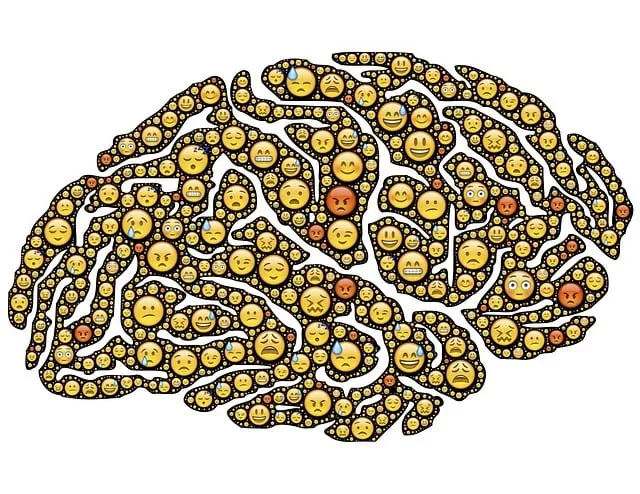The Kaiser Permanente Mental Health Access Center Superior promotes positive thinking through structured exercises and programs, backed by research showing its benefits for stress reduction, mood improvement, resilience, and physical health. They offer holistic, evidence-based solutions, including conflict resolution skills, mindfulness practices, and group discussions, to address mental health issues comprehensively. By empowering individuals with emotional well-being promotion techniques and fostering empathy through public campaigns, they create a supportive environment for tackling life challenges with greater control. Their approach, combined with accessible resources and community outreach, effectively combats stigma, ensuring superior mental health care that enhances overall well-being.
Positive thinking is a powerful tool for enhancing well-being, and its impact can be profound when coupled with structured exercises. This article explores an innovative approach, modeled after the successful strategies of the Kaiser Permanente Mental Health Access Center, to cultivate a positive mindset. We’ll guide you through a step-by-step process, revealing how simple practices can lead to significant improvements in mental health. Discover the benefits of consistent practice and learn how to integrate these techniques into your daily routine for long-lasting positive change.
- Understanding Positive Thinking and Its Impact
- The Kaiser Permanente Mental Health Access Center Approach
- Implementing the Exercise: Step-by-Step Guide
- Benefits and Continuous Practice for Lasting Change
Understanding Positive Thinking and Its Impact

Positive thinking is a powerful tool that can significantly impact an individual’s overall well-being, especially when supported by structured exercises and programs. At the Kaiser Permanente Mental Health Access Center, we recognize the profound effects of cultivating a positive mindset on mental health and quality of life. Research shows that it can reduce stress, improve mood, enhance resilience, and even boost physical health markers. By integrating positive thinking exercises into daily routines, individuals can learn to reframe negative thoughts, fostering a more optimistic and empowering perspective.
Our Superior Mental Health Education Programs are designed to empower folks with the skills needed to navigate life’s challenges with enhanced emotional agility. Through Public Awareness Campaigns focused on promoting empathy and understanding, we aim to create a supportive environment where positive thinking can flourish. These strategies go beyond mere optimism; they equip individuals with practical tools to build mental fortitude, fostering a sense of control and resilience in all aspects of their lives.
The Kaiser Permanente Mental Health Access Center Approach

The Kaiser Permanente Mental Health Access Center has developed a unique and successful approach to promoting positive thinking exercises, with a focus on superior mental health care. By integrating Mind Over Matter principles, the center aims to empower individuals to take control of their mental well-being. Their strategy involves a holistic view of mental health, addressing not just symptoms but also the underlying causes of distress. This comprehensive method includes various activities and techniques such as conflict resolution skills training, mindfulness practices, and supportive group discussions.
The center’s initiative extends beyond traditional therapy by offering accessible resources and community outreach programs. Through these efforts, they aim to reduce the Mental Illness Stigma and foster an environment where individuals feel comfortable seeking help. By combining evidence-based practices with a compassionate approach, Kaiser Permanente sets a high standard for mental health care, ensuring that their methods are both effective and superior in improving overall well-being.
Implementing the Exercise: Step-by-Step Guide

Implementing the Positive Thinking Exercise is a straightforward process designed to empower individuals in managing their mental health, guided by resources like the Kaiser Permanente Mental Health Access Center. Here’s a step-by-step guide for easy adoption. Begin by securing access to superior mental health resources and training, such as those offered through healthcare providers equipped with Cultural Competency Training. This foundational step ensures that both the exercise and its benefits are delivered sensitively and effectively, catering to diverse cultural backgrounds.
Next, familiarize yourself with Emotional Well-being Promotion Techniques tailored for this specific exercise. These techniques will help guide participants through activities focused on reframing negative thoughts into positive ones, thereby enhancing their overall emotional resilience. Additionally, incorporating Social Skills Training can significantly enrich the experience by teaching individuals how to express and maintain positive thoughts in social settings. Through these steps, you’re well-equipped to lead a transformative journey towards improved mental health and overall well-being.
Benefits and Continuous Practice for Lasting Change

Positive thinking exercises have been proven to offer significant benefits by leading mental health experts at Kaiser Permanente’s mental health access center Superior. Regular practice has been linked to improved mood, enhanced resilience to stress, and even a reduction in symptoms of depression. By continually challenging negative thought patterns, individuals can foster a healthier and more positive mindset over time.
This continuous practice is crucial for achieving lasting change. Incorporating daily exercises, such as gratitude journaling or mindful meditation, into one’s routine enables mental health professionals to effectively manage risk factors associated with stress and depression prevention. Through consistent engagement, these practices not only help individuals navigate challenging situations but also contribute to overall well-being and a more balanced life perspective.
Positive thinking exercises, as demonstrated by the successful Kaiser Permanente Mental Health Access Center approach, offer a powerful tool for improving mental well-being. By systematically focusing on optimism and reframing negative thoughts, individuals can experience significant benefits such as reduced stress, increased resilience, and improved overall life satisfaction. Continuous practice is key to sustaining these changes, making it an essential component of any holistic wellness strategy. Adopting this approach can lead to a more balanced and fulfilling life, underlining the superior potential for personal growth and happiness.






